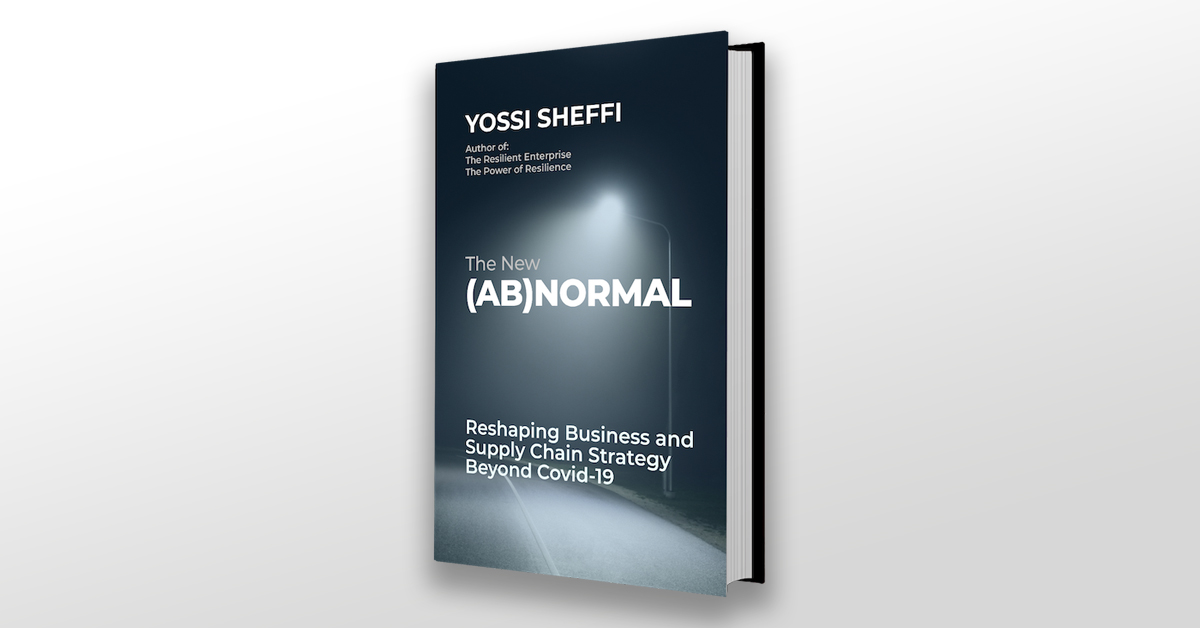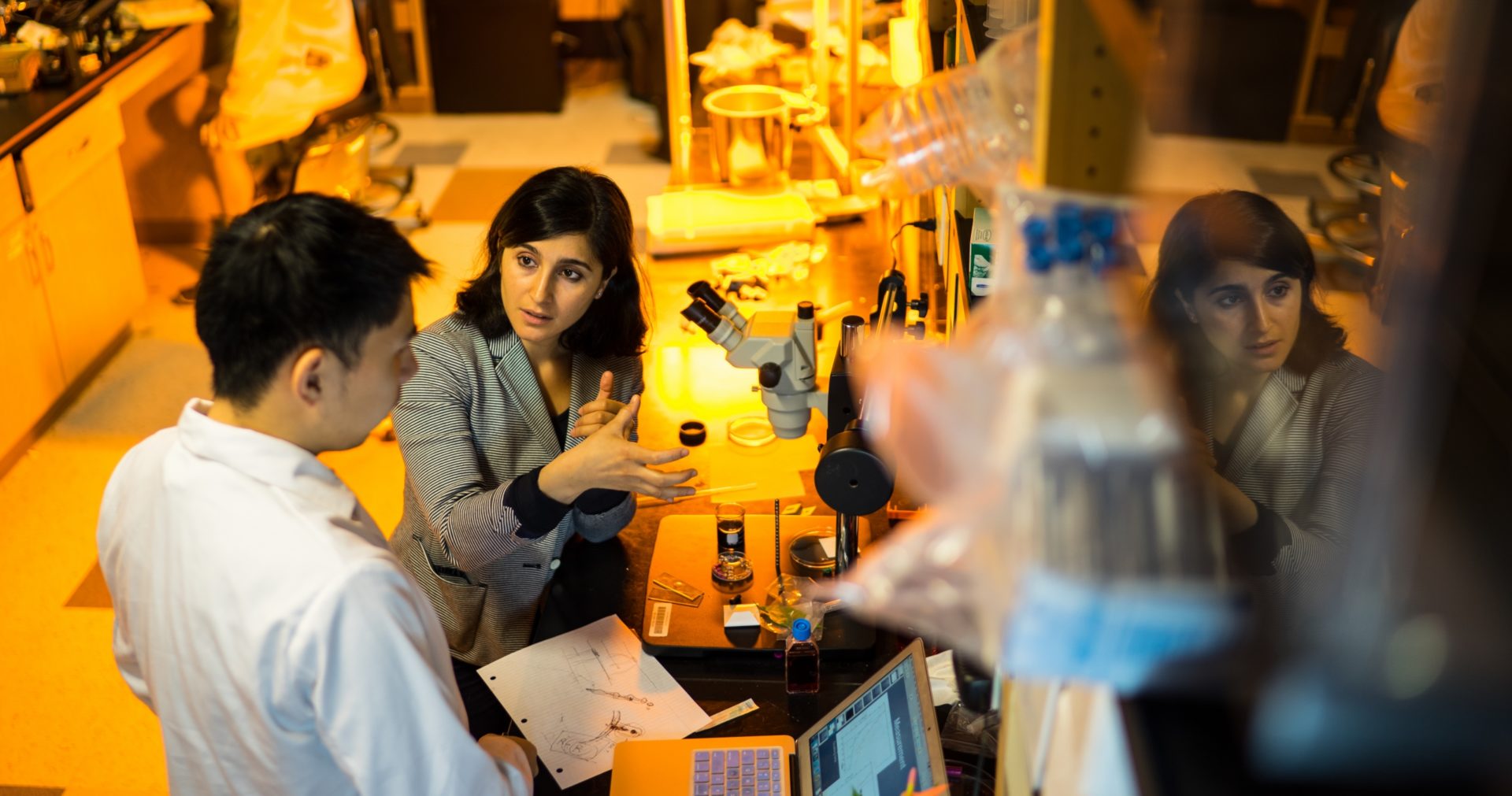The New (Ab)Normal, by Professor Yossi Sheffi, details how businesses and supply chains may be changed forever in the wake of the COVID-19 pandemic

 When COVID-19 hit, it threatened the way of life much of society had become used to and challenged countries, governments and businesses to respond with ingenuity and technology. In his new book, The New (AB)Normal, MIT Professor of Civil and Environmental Engineering Yossi Sheffi provides an inside look at the ways in which business, supply chains, and the global economy worked to overcome the circumstances brought on by the outbreak, and how those responses could reshape the way companies operate and our way of life permanently.
When COVID-19 hit, it threatened the way of life much of society had become used to and challenged countries, governments and businesses to respond with ingenuity and technology. In his new book, The New (AB)Normal, MIT Professor of Civil and Environmental Engineering Yossi Sheffi provides an inside look at the ways in which business, supply chains, and the global economy worked to overcome the circumstances brought on by the outbreak, and how those responses could reshape the way companies operate and our way of life permanently.
Sheffi has served as the Director of the MIT Center for Transportation and Logistics since 1992; he has written several books on logistics and supply chain management – but this book was his first attempt as his own publisher as well. The book sets the stage by taking readers through the early days of the pandemic outbreak and leads into what Sheffi calls the “finest hour” for supply chain managers and workers. Sheffi explains how businesses were able to position themselves to meet the unique supply chain management challenges posed by the pandemic.
“Flexibility is key, especially for companies that buy and sell all over the world. During the next year or so companies will face a “whack-a-mole” recovery, involving random flare-ups, shutdown and recovery around the world in random places in random times. Think about Spain – plants and manufacturing there is closing down as we speak. If you buy your raw materials, parts, or finished products there, you cannot get it so you have to quickly adjust. Companies have to be very agile.” Explains Sheffi.
The book also addresses misconceptions around the notion everyday consumer supplies have become unavailable during lockdown periods as governments closed manufacturing to contain the spread of the virus. As Sheffi puts it, with the exception of medical supplies, almost nothing consumers regularly buy is in danger of running out. And most of the spot shortages were due to headlines that exasperated these spot shortages into a crisis, such as the toilet paper saga.
“There was meat, maybe they didn’t have exactly the cut consumers were looking for, but they did have protein to buy. Toilet paper shortage was in regard to the very soft stuff that we are used to, but the second tier-grade paper was almost always available and now, you see it in stores and there is little problem,” Sheffi continues. “When we talk about critical supplies, such as medical supplies we will need to have inventories. However, we do not need years’ worth, even if the pandemic may last for years – you need it for three to five months until the industry can adjust. As we have seen, many companies started producing every needed item from ventilators to masks.”
Ultimately, Sheffi sees the problems brought on by COVID-19 as very similar to those posed by climate change: both are global problems that require global solutions. In both cases the world did not listen to the warnings and we are now facing the consequences. Sheffi also believes that in both cases the solutions are technological.
“In the case of the pandemic the world had turned to engineers and scientists to develop vaccines and pharmaceuticals. To deal with global warming, technology has already produced renewables whose cost is lower – in many cases – than carbon-based technologies. However, the ultimate solution will be in technologies that reduce the green house gases already in the atmosphere, not only in reducing the rate of emissions and changing behavior. Finally, the pandemic has shown that when the problems are dire, there is money to solve them. One can only hope that a fraction of the money thrown at the pandemic will be used to develop and scale appropriate technologies to fight global warming. When the world takes the threat of global warming seriously, we will find a solution that will not only mitigate but reverse the effects of global warming.” Says Sheffi.
Sheffi is hopeful that the shared experience of COVID-19 and the poor handling of the response will be a wake up call that will ultimately benefit our society in the future.
The New (Ab)Normal: “Reshaping Business and Supply Chain Strategy Beyond Covid-19” is available now on Amazon. Professor Sheffi will be giving a book talk to the MIT community on Monday, 10/26 at noon. You can register for the talk here.
Share on Bluesky


